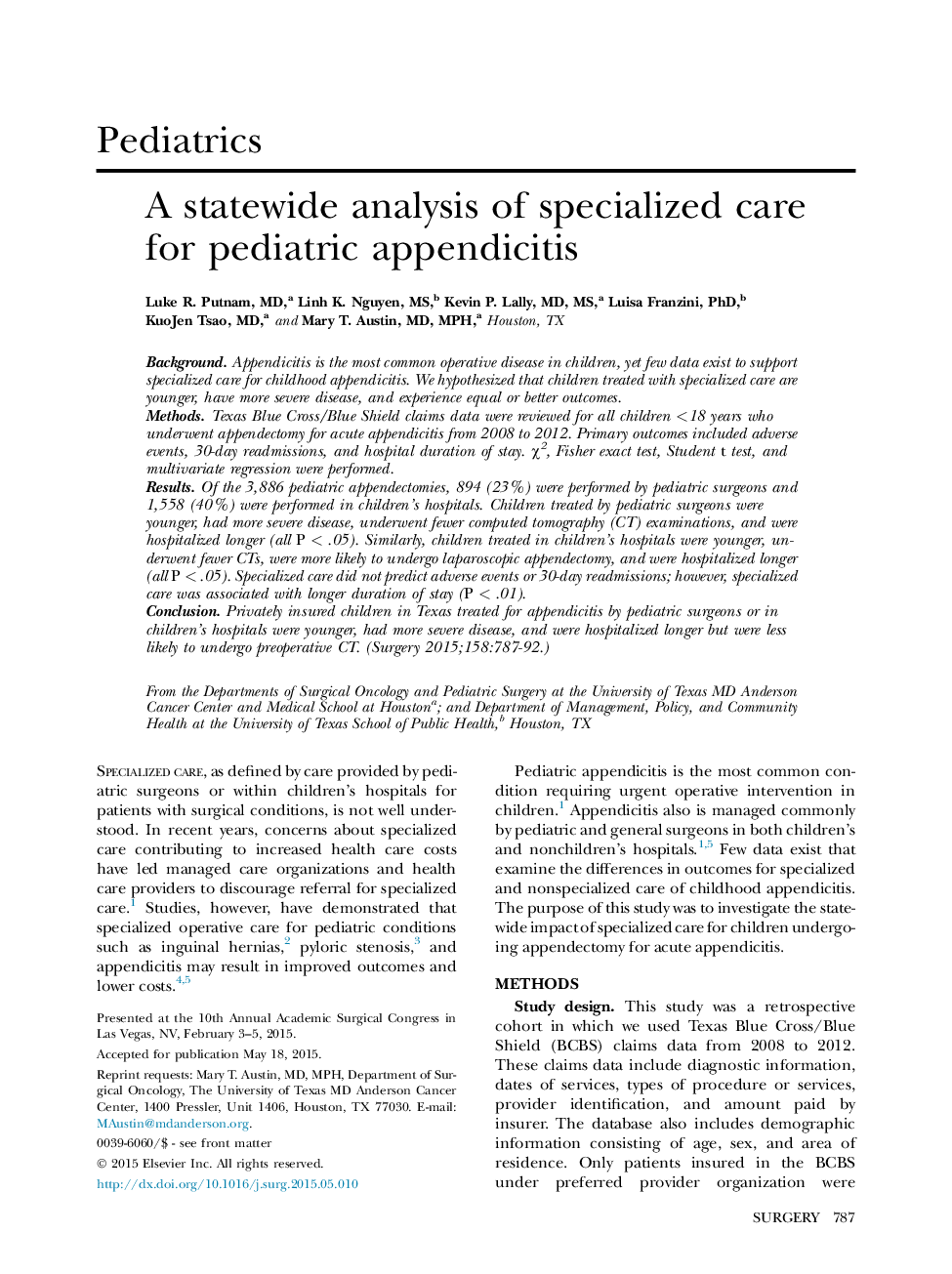| Article ID | Journal | Published Year | Pages | File Type |
|---|---|---|---|---|
| 4306708 | Surgery | 2015 | 6 Pages |
BackgroundAppendicitis is the most common operative disease in children, yet few data exist to support specialized care for childhood appendicitis. We hypothesized that children treated with specialized care are younger, have more severe disease, and experience equal or better outcomes.MethodsTexas Blue Cross/Blue Shield claims data were reviewed for all children <18 years who underwent appendectomy for acute appendicitis from 2008 to 2012. Primary outcomes included adverse events, 30-day readmissions, and hospital duration of stay. χ2, Fisher exact test, Student t test, and multivariate regression were performed.ResultsOf the 3,886 pediatric appendectomies, 894 (23%) were performed by pediatric surgeons and 1,558 (40%) were performed in children's hospitals. Children treated by pediatric surgeons were younger, had more severe disease, underwent fewer computed tomography (CT) examinations, and were hospitalized longer (all P < .05). Similarly, children treated in children's hospitals were younger, underwent fewer CTs, were more likely to undergo laparoscopic appendectomy, and were hospitalized longer (all P < .05). Specialized care did not predict adverse events or 30-day readmissions; however, specialized care was associated with longer duration of stay (P < .01).ConclusionPrivately insured children in Texas treated for appendicitis by pediatric surgeons or in children's hospitals were younger, had more severe disease, and were hospitalized longer but were less likely to undergo preoperative CT.
